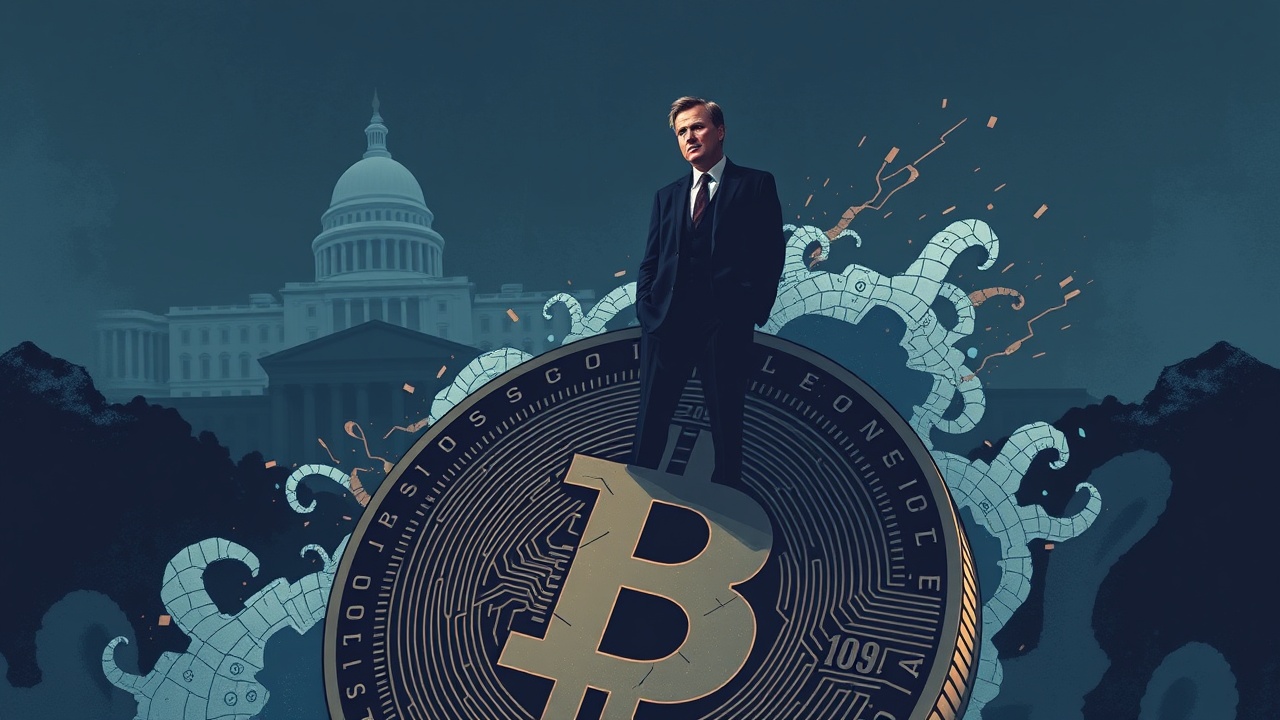Controversial Claims at Turning Point USA Event
During a recent event held by Turning Point USA in honor of Charlie Kirk, popular political analyst Tucker Carlson ignited discussions by asserting his controversial belief that the Central Intelligence Agency (CIA) might be the true creator of Bitcoin. This claim aligns with a longstanding conspiracy theory in the cryptocurrency community, suggesting a government agenda behind the digital currency. Carlson also went on to label cryptocurrencies as mechanisms of “totalitarian control”, opinions that drew audible disapproval from attendees familiar with the world of crypto.
Personal Views on Financial Independence
In response to a query from the audience regarding his personal investment in Bitcoin, Carlson expressed his admiration for the concept of financial independence. He remarked that while he has always maintained tax integrity, he identifies as a “tented” individual, implying a desire for autonomy over personal finance:
“Once the money is mine, I can do what I want with it.”
Support for Roger Ver and Concerns about Control
Despite expressing skepticism towards cryptocurrencies, Carlson does not entirely oppose them. He previously voiced support for Roger Ver, a prominent figure in crypto circles, advocating for the cessation of legal actions against him. In a statement that appeared on the Free Roger Ver campaign website, he criticized the legal battles Ver faces as being less about taxation and more about exerting control over dissenters challenging the status quo in finance and governance.
Unease Regarding Digital Currencies
At the same time, Carlson shared his unease regarding the nature of digital currencies, citing a lack of privacy and the potential for them to act as tools of state control. He explained that younger generations are drawn to Bitcoin as a means of escaping economic struggles in a challenging job market, viewing it as a potential pathway to regain financial agency. However, his concerns about cryptocurrencies devolving into schemes controlled by financial elites highlight a belief that politicians may leverage digital currencies to manipulate society.
Critique of Central Bank Digital Currencies
Carlson’s comments reflect a broader critique of central bank digital currencies (CBDCs) being developed by governments, such as China’s digital yuan and efforts in Europe and Russia. Despite the United States formally stepping back from CBDC initiatives during the Trump administration due to privacy concerns and the signing of legislation to prohibit such developments, the Treasury has begun exploring ways to monitor stablecoin transactions for potential illegal activities, leading to fears among some that these financial innovations could turn into surveillance mechanisms.
Perplexity Over Bitcoin’s Origins
As he elaborated on why he refrains from investing in cryptocurrencies, Carlson admitted to feeling perplexed by Bitcoin’s origins—specifically the mystery surrounding its anonymous founder Satoshi Nakamoto. He stated,
“You’re telling me to invest in something whose founder is mysterious and has billions of dollars of unused Bitcoin; like what is that?”
This doubt surfaces from his background, growing up in a government-oriented family in Washington, D.C., leading him to deduce that Bitcoin’s inception could potentially link back to the CIA.
Reactions from the Crypto Community
This theory—that the CIA is behind Bitcoin—has gained traction among conspiracy theorists, despite being largely dismissed by the crypto community. Observers argue that Bitcoin’s open-source nature and independence from any central authority undermine such claims. Many defenders of cryptocurrencies expressed disbelief at Carlson’s assertions, emphasizing that the decentralized network allows for transparency and democratic participation, contrasting with the narrative of centralized control.
Conclusion
While Carlson’s views resonate with certain skepticism about the interplay between government and digital finance, they also reflect a broader dialogue about the complexities and challenges posed by cryptocurrencies and their regulation in the contemporary financial landscape. Critics within the crypto community reiterated that labeling Bitcoin as a governmental tool overlooks its use in various countercultural movements and contexts—a narrative they believe is essential in re-establishing its true ethos of freedom and decentralization.




